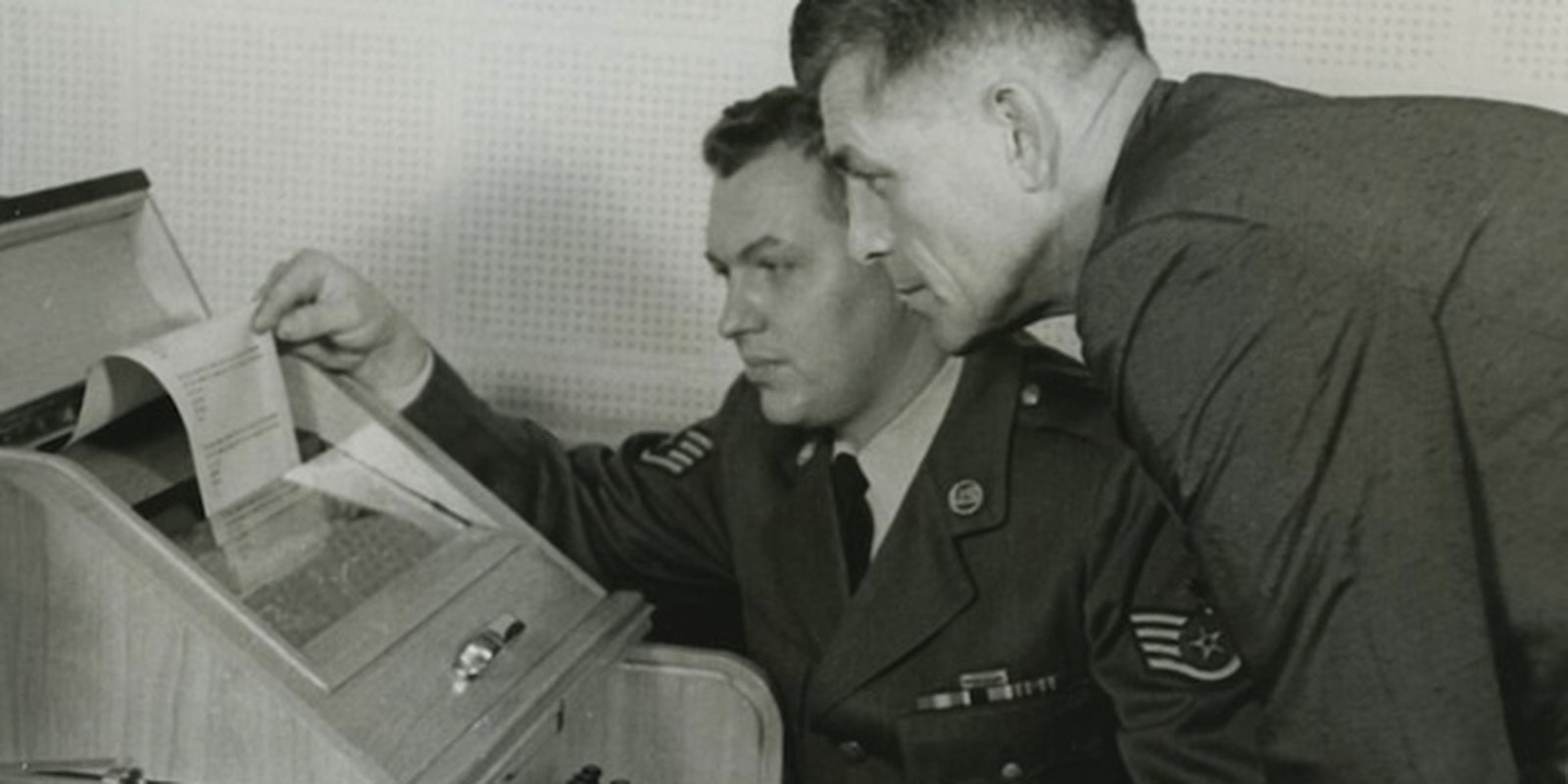The NSA trumps even the CIA as the nation’s most secretive intelligence agency. Though it first began shape in the 1930s, its existence wasn’t even publicly acknowledged until the 1970s. But even top secret spy programs, it turns out, like to keep photo albums.
Last year, in celebration of its 60th anniversary, the NSA published an “interactive timeline.” The crown jewel is a stockpile of photos, many of them previously kept secret, from its own archives. It’s chock full of fascinating images taken throughout the agency’s history, beginning in the 1930s, when the nascent proto-NSA was still called the US Signal Intelligence Service (it would be officially become the Armed Forces Security Agency in 1949 and the NSA in 1951).
The NSA, it turns out, wasn’t always so intent on spying on Americans—the NSA began as a secret cryptologic service that broke foreign foes’ code in wartime. So, to better introduce everyone to our clandestine spy cabal that’s currently spying on America, let’s flip through their digital scrapbook.

Cryptologists during WWII
The proto-NSA’s earliest missions included deciphering communications from both Nazi Germany and the Japanese Navy, and to encrypt American messages.

M-138, a strip cipher device that allowed the use of multiple alphabets to encipher messages.
The Signal Intelligence Service cryptologists used a Bombe machine, developed in Britain, to decipher Nazi messages encoded by Germany’s Enigma machine.

Bombe Operator, World War II

Fleet Radio Unit Pacific (FRUPAC) in Hawaii working on JN-25, the principal Japanese Navy encryption system (1945)
Of course, Eisenhower was in on it.

Gen. Eisenhower visits Arlington Hall, William Friedman is standing on the far left.
Read the full story on Motherboard.


